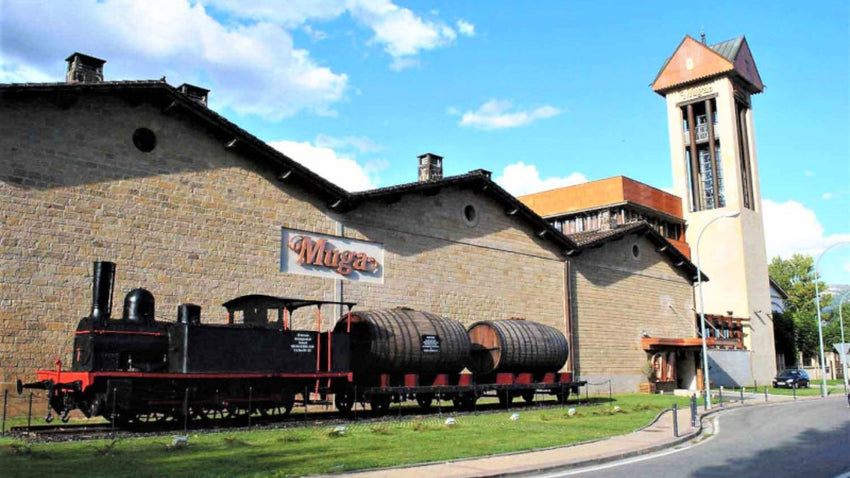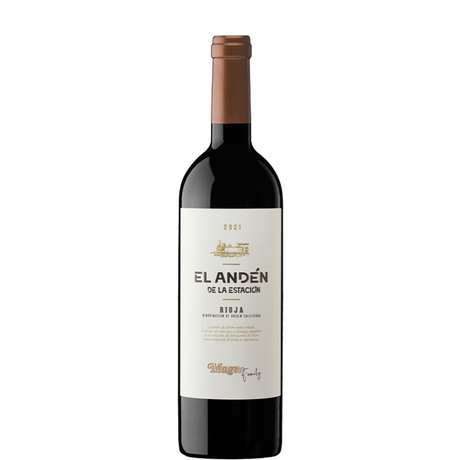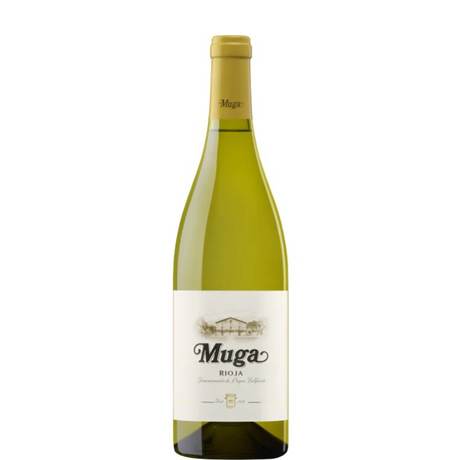Muga Winery

| Año de fundación | 1932 |
| País | |
| Enólogo |
|
| Uvas | |
| Regiones |
-
-
-
Up to 14% off15,50 €
18,00 €Unit price /Unavailable -
-
Three generations of the Muga family are part of the history of Rioja wine. Their ability to listen to their customers and evolve to adapt to their tastes has led them to create a unique style. While remaining true to their own convictions, they have projected the strength of their brand to more than 70 countries, a fact that places them among the elite of the appellation.
The winery
The Muga family has been in Rioja for generations. The great-grandfather was a foreman at La Rioja Alta, SA, and the grandfather of the current winery owner, Isaac, met his future wife, Aurora Caño, there. Together, they founded their own winery in some underground cellars on Haro's main street; it was 1932, and Bodegas Muga was born. That same year, the family began buying and selling bulk wine and started to gain recognition in the region thanks to their clarets. It wasn't until the second generation that they began producing and labeling their own wines (1968, Muga Crianza), as well as constructing the current building, a beautiful Rioja-style manor house in Haro's Station District, where the family moved in 1970.
The team
The third generation is taking the reins from brothers Manuel and Isacín. Manu, Juan, and Eduardo, Manuel's sons, are in charge of sales and management, while their sister Ana, who lives in Madrid, handles communications. Their cousins, Isacín's sons, oversee the viticulture and winemaking; Jorge focuses on red wines, while Isaac concentrates on whites and rosés. A fourth generation will soon be working at the winery.
Territory and viticulture
Bodegas Muga owns approximately 300 hectares of vineyards, which account for three-quarters of its total production. The influences of the Mediterranean, Atlantic, and continental climates blend harmoniously, creating an ideal climate for the grapes in each of the estates.
El Estepal is a unique area in Rioja, one of the terroirs that best defines the typicity of the wines produced in Haro. Its geological and climatic characteristics give the wines a distinctive personality with great aging potential.
La Loma is an exceptional vineyard located a few kilometers from Haro, on a plateau with a very particular geological structure and fantastic protection from the cold north winds.
Baltracones are the first vineyards owned by the Muga family. Their premium wines come from this idyllic spot with reddish soils, located at an altitude of 475 meters.
La Loma Alta is one of the youngest vineyards, planted with a selection of our own vines.
Sajazarra is located at the highest altitude in La Rioja, in a borderline cultivation area that generates very good acidity and aging potential.
Elaboration
The grapes received at the winery are analyzed to determine their sugar content, acidity, color, and phytosanitary condition. Based on these parameters, they are classified by quality. Subsequently, the bunches pass through the sorting table and destemmers, and the grapes are then placed in the fermentation vats.
Bodegas Muga has four fermentation rooms with 90 wooden vats ranging in capacity from 3,000 to 15,000 kilos. This allows them to vinify grapes individually according to their quality and vineyard of origin.
True to traditional methods, Bodegas Muga uses oak throughout the entire winemaking process (fermentation, aging, and storage). In fact, it is one of the few Spanish wineries that employs three coopers and a vat maker, responsible for working the oak wood to construct their own barrels and vats. Bodegas Muga championed trades that were disappearing in the 1980s and 90s, and it paid off handsomely.
Barrel aging lasts between 24 and 36 months. Every four months, the wine is racked by gravity to remove impurities that have settled during aging and to facilitate oxygenation.
Before bottling, the wine is clarified using the traditional method of fresh egg whites. This involves adding two to three fresh egg whites per hectoliter of wine to remove impurities and soften the tannins. The egg whites, along with the impurities, are then mixed with manure to produce compost, which is used to fertilize the vineyards, thus completing the cycle.
Once bottled, the wine will remain aging in the bottle for between 9 months for the Crianza and 36 months for the Prado Enea Gran Reserva.

 Spain
Spain




